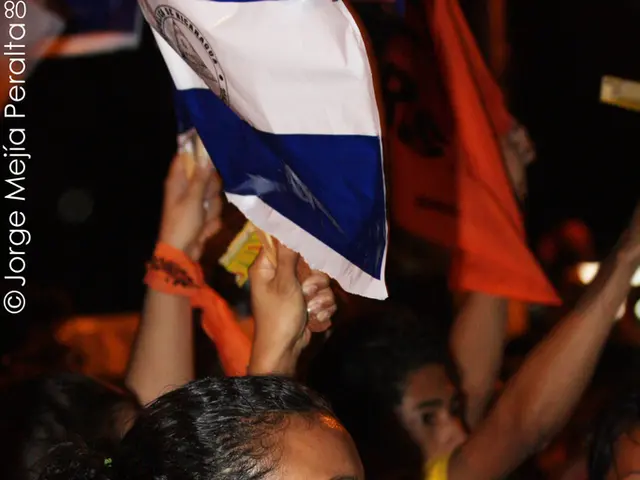French President Macron publicly admits to the oppressive actions of French colonial rule in Cameroon
A new report has been released, shedding light on France's role in Cameroon's fight for independence and the subsequent years. The report, commissioned by French President Emmanuel Macron in 2022, was compiled by a Franco-Cameroonian historical commission, and it paints a grim picture of France's actions during this period[1][2].
The report found that France was responsible for widespread and deliberate repressive violence against the Cameroonian population from 1945 to 1971, encompassing both the colonial period and the post-independence era. The conflict erupted as Cameroon pushed for independence starting in 1956, with France violently suppressing the movement[1][2].
Key findings include the use of repressive violence during and after Cameroon’s war of independence (1956–1961), causing tens of thousands of deaths and displacing hundreds of thousands of people[2]. The French colonial authorities and army sent hundreds of thousands of Cameroonians to internment camps and funded paramilitary death squads[1].
Much of the repression targeted the Union of the Peoples of Cameroon (UPC), a left-wing political party advocating independence, which France banned and denounced as communist. This forced the UPC underground, initiating a prolonged guerrilla war[1]. The violent conflict persisted beyond independence in 1960. France supported Cameroonian post-independence repression through its backing of Ahmadou Ahidjo's regime amid internal power struggles that lasted until 1971[1].
In a letter sent to Cameroonian counterpart Paul Biya last month, Macron publicly acknowledged France’s role in this repressive violence and pledged to open and declassify archives related to these events to promote further research and transparency, though he stopped short of issuing an official apology[1][2].
The report reveals a dark chapter of colonial and postcolonial violence by France in Cameroon, highlighting systematic state-led repression during Cameroon’s struggle for independence and beyond, with long-lasting repercussions[1][2].
The rest of Cameroon was colonized by Britain, and the country came under French rule during World War I, following Germany's defeat in the war. The report noted that the French army carried out repressive violence of several kinds that continued after 1960.
The letter comes at a time when France's current presence in its former African colonies has become increasingly contested. The report on France's actions in Cameroon's fight for independence found that France's repressive measures cost "tens of thousands of lives." Macron ruled out officially apologizing for the abuses carried out by French soldiers in Algeria.
The report is part of Macron's push for France to come to terms with its own colonial history. The French President admitted the use of "repressive violence" by France in Cameroon during the 1950s. The report, made public by Macron's office on Tuesday, is a significant step towards addressing France's past actions in its former colonies.
[1] BBC News. (2023, February 1). France admits role in Cameroon's independence violence. [online] Available at: https://www.bbc.co.uk/news/world-africa-64216883
[2] The Guardian. (2023, February 1). France acknowledges 'overwhelming responsibility' for repression in Cameroon. [online] Available at: https://www.theguardian.com/world/2023/feb/01/france-admits-overwhelming-responsibility-for-repression-in-cameroon-during-independence-struggle
Read also:
- Discussion between Putin and Trump in Alaska could potentially overshadow Ukraine's concerns
- Massive 8.8 earthquake hits off the coast of Russia's Kamchatka Peninsula, prompting Japan to issue a tsunami alert.
- Court petitions to reverse established decision on same-sex marriage legalization
- Independence supporters in New Caledonia refuse agreement offering authority without a vote on sovereignty







